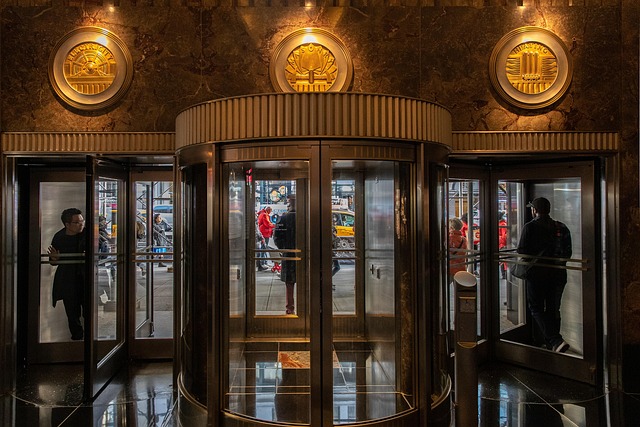Commercial gas water heaters cater to high-demand hot water needs in businesses like restaurants and hotels, offering high-capacity heating and energy efficiency. Types include storage tank and tankless heaters, with modern advancements like condensing heaters reducing environmental impact. Remote monitoring systems optimize performance, track real-time consumption, identify leaks or inefficiencies, and enable remote control, enhancing operational efficiency and customer satisfaction. Tankless gas heaters and condensing water heaters ensure significant savings without sacrificing capacity, making them ideal for institutional settings. Integrated remote access allows managers to monitor temperature, flow rates, and pressure levels, preventing unexpected failures and extending system lifespans through regular maintenance, thus promoting sustainability in commercial hot water systems.
Commercial gas water heaters are essential components in various industries, offering reliable hot water solutions. With advancements in technology, remote monitoring and control systems have emerged, transforming their management. This article explores these innovative features, highlighting their benefits for efficiency and cost savings. We delve into the technical aspects, security measures, and maintenance requirements of modern commercial gas water heaters with remote access, providing a comprehensive guide for business owners.
- Understanding Commercial Gas Water Heaters
- Benefits of Remote Monitoring Systems
- Advanced Control Features for Efficient Operations
- Security and Maintenance Considerations
Understanding Commercial Gas Water Heaters

Commercial gas water heaters are designed to meet the demanding hot water needs of businesses and institutions, from restaurants and hotels to healthcare facilities and offices. These heaters offer a range of benefits tailored to commercial settings, including high-capacity heating for large spaces and multiple users. They can be classified into two main types: storage tank heaters and tankless gas heaters. Storage tank models store hot water in an insulated tank, ensuring a consistent supply while reducing energy consumption through standby heat loss. Tankless systems, on the other hand, heat water on demand, eliminating the need for storage, making them ideal for applications requiring instant hot water like restaurant sinks or hotel showers.
Gas fired water heating technologies have evolved to include energy-efficient systems featuring condensing heaters that capture and reuse heat from exhaust gases, boosting efficiency and reducing environmental impact. These advanced commercial hot water systems not only lower operating costs but also contribute to sustainability goals by minimizing greenhouse gas emissions. With remote monitoring and control capabilities, businesses can now optimize their water heating operations further, ensuring optimal performance, extended equipment life, and reduced downtime.
Benefits of Remote Monitoring Systems

Remote monitoring and control systems offer significant advantages for businesses using commercial gas water heaters. One of the key benefits is the ability to track and manage energy consumption in real-time, allowing operators to optimize their hot water usage and identify potential inefficiencies or leaks promptly. This proactive approach not only reduces energy costs but also minimizes downtime caused by unexpected failures.
Additionally, these systems enable remote control, giving managers the flexibility to adjust heater settings from anywhere. This is particularly useful for institutional heating, restaurant water heating, and hotel hot water systems, where quick responses to changing demands or maintenance schedules can significantly enhance operational efficiency and customer satisfaction. With high-capacity heaters like tankless gas heaters and condensing water heaters becoming popular choices, remote monitoring ensures these advanced energy-efficient systems perform at their best.
Advanced Control Features for Efficient Operations

Modern commercial gas water heaters come equipped with advanced control features designed to optimize efficiency and performance. These smart systems allow for precise temperature regulation, ensuring consistent hot water supply while minimizing energy consumption. With remote monitoring capabilities, facility managers can track heater performance, set customized schedules, and receive alerts for maintenance or repairs, all from the convenience of a smartphone or computer.
This level of control is particularly beneficial in institutional settings like hotels and restaurants where hot water demand fluctuates throughout the day. By adjusting heating cycles based on real-time usage patterns, these advanced commercial hot water systems, including tankless gas heaters and condensing water heaters, offer significant energy savings without compromising on capacity. High-capacity heaters can handle demanding applications, while energy-efficient designs ensure sustainable operations.
Security and Maintenance Considerations

Commercial gas water heaters with remote monitoring offer enhanced security and maintenance features that are becoming increasingly important for businesses looking to optimize their heating systems. By integrating remote access, facility managers can monitor water temperature, flow rates, and pressure levels from anywhere, ensuring optimal performance and preventing unexpected failures. This capability is especially valuable in institutional settings like hotels and restaurants, where hot water availability is critical for daily operations.
Regular maintenance is crucial for the longevity of gas fired water heating systems, and remote monitoring facilitates this process. Alerts can be set for low flow conditions, potential pressure issues, or unusual temperature fluctuations, enabling prompt action to avoid costly breakdowns. Moreover, remote management allows for scheduled maintenance tasks, ensuring high capacity heaters and storage tank heaters operate efficiently, thereby reducing energy consumption and promoting sustainability in commercial hot water systems, including condensing water heaters known for their energy efficiency.
Commercial gas water heaters with remote monitoring and control capabilities are transforming how businesses manage their hot water systems. By leveraging advanced technologies, these smart heaters offer increased efficiency, reduced costs, and enhanced safety features. Through real-time monitoring and precise control, facility managers can navigate energy usage, predict maintenance needs, and ensure optimal performance, ultimately streamlining operations for any commercial establishment.






